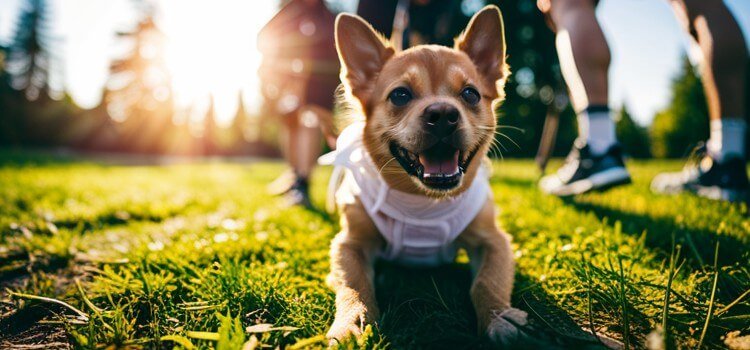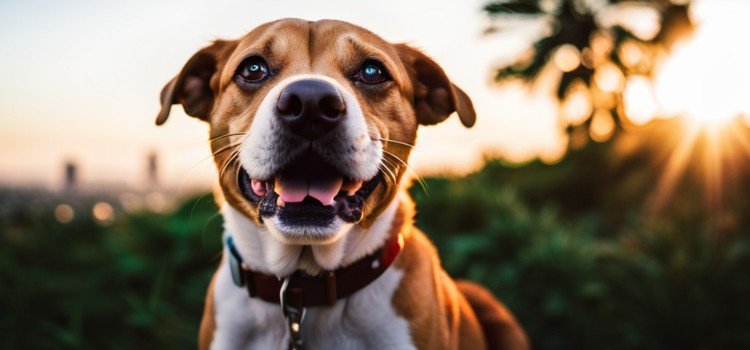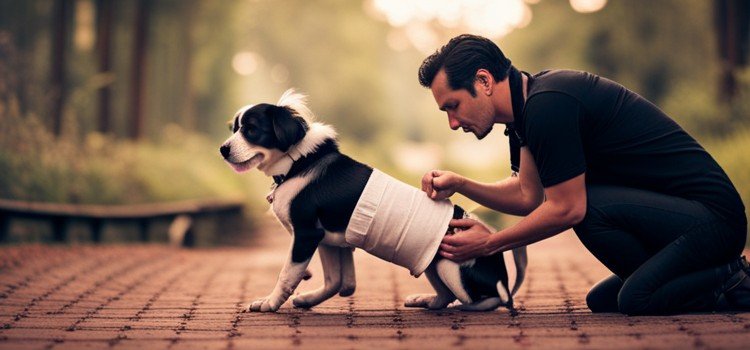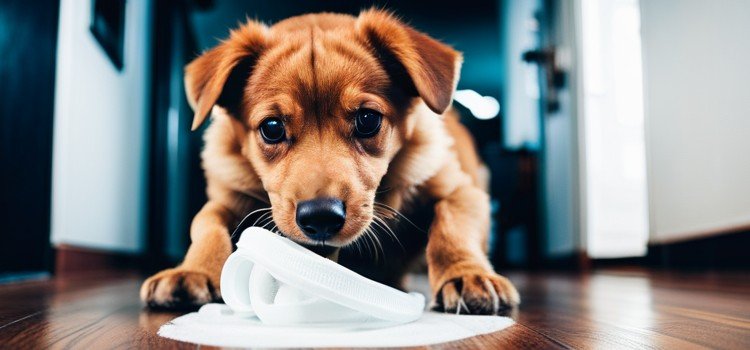As an Amazon Associate committed to the mission of improving the lives of our readers, Live-Clear.com receives a small commission from eligible purchases made through our affiliate links. This revenue enables us to keep producing insightful articles and other material.
Dogs are our loyal companions; like us, they sometimes experience discomfort and skin irritations. One common concern among pet owners is whether dogs can get diaper rash. This article will explore this topic in detail, addressing the causes, symptoms, prevention, and treatment of diaper rash in dogs.

Understanding Diaper Rash
Diaper rash is a common skin condition in infants caused by prolonged exposure to moisture, friction, and diaper chemicals. It typically manifests as redness, irritation, and sometimes blisters on a baby’s delicate skin. But can our furry friends, dogs, also suffer from a similar ailment? Let’s delve deeper to find out.
Can Dogs Get Diaper Rash?
The Anatomy of Dog Skin
Before we answer the question, it’s essential to understand the fundamental differences between human and dog skin. Unlike human skin, which is relatively thick and has many layers, a dog’s skin is thinner and more delicate. Dogs rely on their fur as their primary protection against external factors.
Common Causes of Diaper Rash in Dogs
- Incontinence: Older dogs or those with certain medical conditions may experience incontinence, leading to increased moisture around their genital area.
- Allergic Reactions: Dogs can be allergic to certain diaper materials or chemicals, leading to skin irritation.
- Poor Hygiene: Infrequent diaper changes or improper cleaning can contribute to dog skin irritation.
- Friction: Just like babies, dogs can experience friction between their skin and the diaper, causing discomfort.
Recognizing the Symptoms
To determine if your dog has diaper rash, watch out for the following symptoms:
- Redness or inflammation around the genital area.
- Excessive scratching or licking.
- Presence of tiny bumps or blisters.
- Unpleasant odor due to trapped moisture.
Preventing Diaper Rash in Dogs
Choose the Right Diaper
If you need to use diapers for your dog, opt for high-quality, hypoallergenic diapers specially designed for pets. These are less likely to cause skin irritation.
Maintain Good Hygiene
Regularly change your dog’s diaper and clean their genital area gently with a pet-safe, mild cleanser. Ensure the place is arid before putting on a new diaper.
Monitor for Allergies
If you notice any signs of allergies or irritation, consult your veterinarian. They can recommend alternative diapering options or suggest treatments for skin allergies.
Provide Frequent Breaks
Give your dog some diaper-free time to allow their skin to breathe and reduce the risk of irritation.
Treating Diaper Rash in Dogs
Mild Cases
For mild diaper rash, you can try the following:
- Change to hypoallergenic diapers.
- Use a protective barrier cream recommended by your vet.
- Maintain a dry and clean environment there.
Severe Cases
If the rash persists or worsens, consult your veterinarian. They might suggest further forms of therapy or provide a prescription for medication.

Conclusion
In conclusion, yes, dogs can get diaper rash, but with proper care, attention, and the right products, you can prevent and treat this uncomfortable condition. Remember to prioritize your furry friend’s comfort and well-being, and consult your vet if you have any concerns about their skin health.
FAQs
Diaper rash can occur in dogs, especially those with incontinence or allergies to diaper materials.
It’s best to use diapers designed specifically for pets, as they are less likely to cause skin irritation.
You can use a pet-safe barrier cream and ensure the area is clean and dry. However, consult your vet for severe cases.
Yes, providing diaper-free time allows your dog’s skin to breathe and reduces the risk of diaper rash.
If the rash persists or worsens despite home remedies, seeking professional veterinary advice and treatment is essential.
Amazon and the Amazon logo are trademarks of Amazon.com, Inc, or its affiliates.



